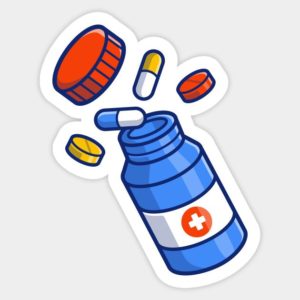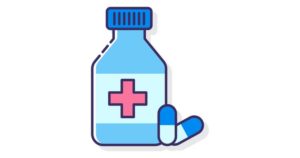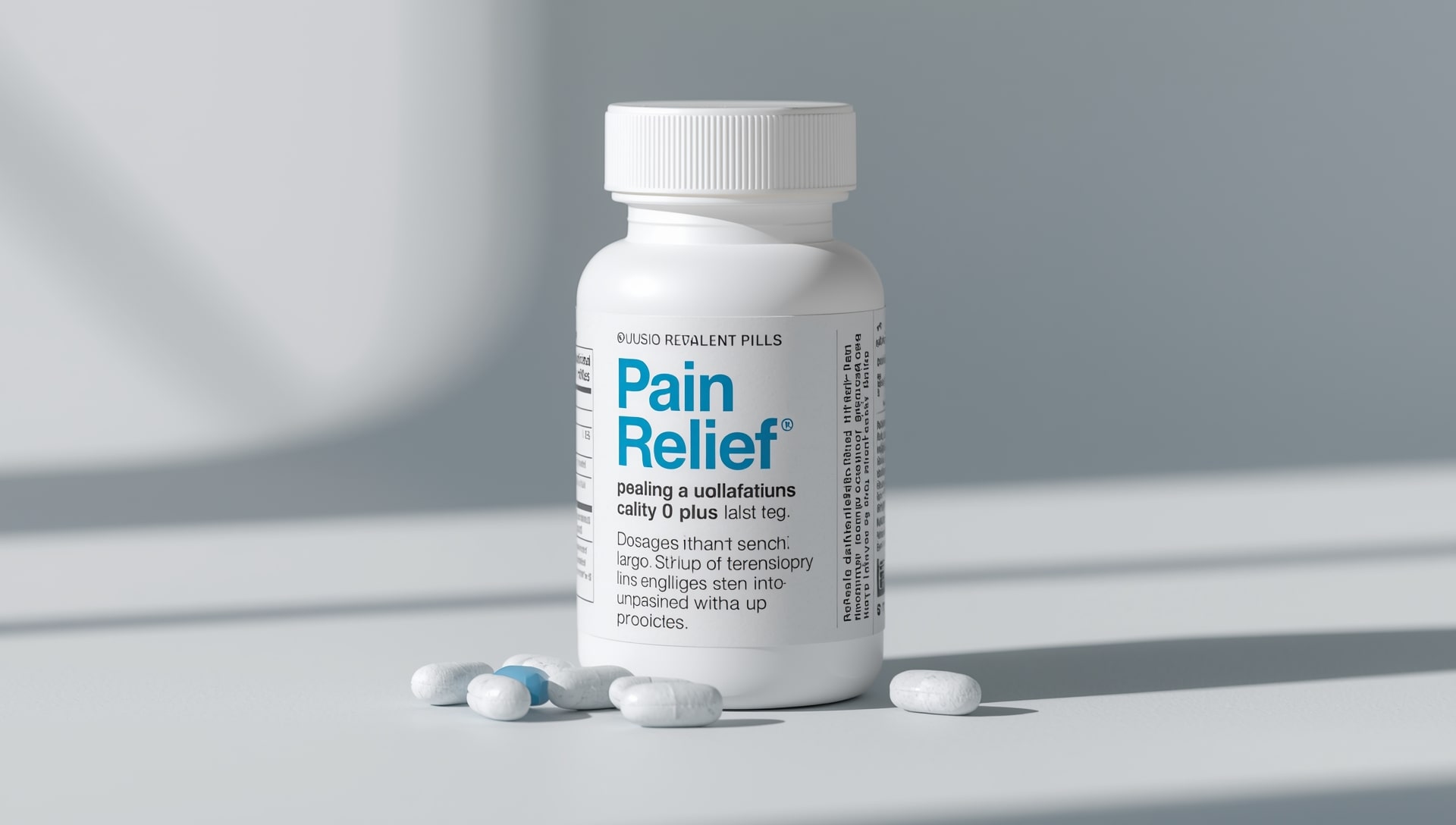
How Long After Drinking Can You Take Sleeping Pill To Work
How Long After Drinking Can You Take Sleeping Pill To Work
In today’s fast-paced world, a good night’s sleep is often elusive. Stress, anxiety, and hectic schedules can leave many of us tossing and turning into the wee hours of the morning. It’s no wonder then that sleeping pills have become a popular solution for those seeking respite from insomnia. However, navigating the world of sleep aids can be daunting, especially with concerns about dosage, safety, and effectiveness. Here, we delve into the frequently asked questions surrounding sleeping pills, addressing everything from their efficacy to potential risks, with a particular focus on the queries of Dokter Now’s clientele. Dokter Now educates on sleeping pills: Explore effects, abuse, addiction, and treatment. Understanding how they work is crucial for better health.How Long Does It Take for Sleeping Pills to Work?
One of the most common questions about sleeping pills is how quickly they take effect. The answer varies depending on the type of sleeping pill you’re taking. Some over-the-counter medications, like diphenhydramine (found in brands like Benadryl), may start working within 20 to 30 minutes, while prescription medications such as zolpidem (Ambien) or eszopiclone (Lunesta) may take effect more quickly, typically within 15 minutes. Dokter Now provides expert medical advice on queries like “how long after drinking can you take sleeping pill?” With precision and care, our platform offers insights tailored to your health concerns. Discover safe practices and recommended timelines for taking medications post-alcohol consumption. Trust Dokter Now for reliable guidance on managing your well-being effectively. Dokter Now: Expert guidance on strong sleeping pills: effects, abuse, addiction & treatment. Your trusted source for sound sleep and safe recovery.
Concerned about insomnia during pregnancy? Consult your doctor about safe options. Some sleeping pills you can take while pregnant, like diphenhydramine (Benadryl), are considered low risk if used occasionally and at recommended doses. However, always prioritize non-medical strategies and discuss any concerns with your healthcare provider.
Dokter Now provides expert medical advice on various topics, including the query: “How long does it take for sleeping pills to work?” Whether you’re grappling with insomnia or seeking guidance on sleep aid effectiveness, our platform connects you with qualified professionals who offer personalized insights and recommendations tailored to your needs. With Dokter Now, gain clarity on sleep medication timelines and make informed decisions for your health and well-being.
Dokter Now provides expert medical advice on queries like “how long after drinking can you take sleeping pill?” With precision and care, our platform offers insights tailored to your health concerns. Discover safe practices and recommended timelines for taking medications post-alcohol consumption. Trust Dokter Now for reliable guidance on managing your well-being effectively. Dokter Now: Expert guidance on strong sleeping pills: effects, abuse, addiction & treatment. Your trusted source for sound sleep and safe recovery.
Concerned about insomnia during pregnancy? Consult your doctor about safe options. Some sleeping pills you can take while pregnant, like diphenhydramine (Benadryl), are considered low risk if used occasionally and at recommended doses. However, always prioritize non-medical strategies and discuss any concerns with your healthcare provider.
Dokter Now provides expert medical advice on various topics, including the query: “How long does it take for sleeping pills to work?” Whether you’re grappling with insomnia or seeking guidance on sleep aid effectiveness, our platform connects you with qualified professionals who offer personalized insights and recommendations tailored to your needs. With Dokter Now, gain clarity on sleep medication timelines and make informed decisions for your health and well-being.
How Many Sleeping Pills Can I Take?
Determining the appropriate dosage of sleeping pills is crucial for ensuring both effectiveness and safety. However, there is no one-size-fits-all answer to this question. The recommended dosage varies depending on factors such as the type of medication, your age, weight, and overall health. It’s essential to follow the dosage instructions provided by your healthcare provider or the medication’s packaging carefully. Taking more than the recommended dosage can lead to serious health risks, including overdose. Dokter Now: Navigating the effects, abuse, and addiction of taking sleeping pills while staying awake. Trust our expertise for guidance & treatment. Dokter Now offers trusted medical insights on queries such as “Can I take sleeping pills while pregnant?” Our platform provides personalized guidance, ensuring the safety and well-being of both you and your baby. Receive expert advice tailored to your unique situation, empowering you to make informed decisions about your health during pregnancy. Trust Dokter Now for reliable support on this important journey.
The appropriate dosage of sleep aid pills depends on various how many sleep aid pills should i take, your age, weight, and overall health. Always follow the dosage instructions provided by your healthcare provider or on the medication label. It’s crucial not to exceed the recommended dose to avoid potential side effects or complications. If unsure, consult your healthcare provider for personalized guidance. Dokter Now explores strongest OTC sleeping pills: Navigating effects, treatments, and risks for better sleep management.
Dokter Now offers trusted medical insights on queries such as “Can I take sleeping pills while pregnant?” Our platform provides personalized guidance, ensuring the safety and well-being of both you and your baby. Receive expert advice tailored to your unique situation, empowering you to make informed decisions about your health during pregnancy. Trust Dokter Now for reliable support on this important journey.
The appropriate dosage of sleep aid pills depends on various how many sleep aid pills should i take, your age, weight, and overall health. Always follow the dosage instructions provided by your healthcare provider or on the medication label. It’s crucial not to exceed the recommended dose to avoid potential side effects or complications. If unsure, consult your healthcare provider for personalized guidance. Dokter Now explores strongest OTC sleeping pills: Navigating effects, treatments, and risks for better sleep management.
How Long After Drinking Can You Take Sleeping Pill: Timing Considerations
Taking too many sleeping pills can have severe consequences. An overdose of sleeping pills, whether intentional or accidental, can lead to symptoms such as confusion, drowsiness, slowed breathing, coma, and even death. If you suspect that you or someone you know has overdosed on sleeping pills, seek medical attention immediately. Pregnancy often brings its own set of sleep challenges, from discomfort to hormonal fluctuations. Many expectant mothers wonder if it’s safe to take sleeping pills during pregnancy. While some medications may be considered relatively safe for use during pregnancy, it’s crucial to consult with a healthcare professional before taking any sleep aids while pregnant. Certain medications, such as benzodiazepines, may pose risks to the developing fetus and should be avoided. Dokter Now examines long-term side effects of sleeping pills: Offering treatments & mitigating risks for sustained sleep health.
Taking sleeping pills during pregnancy requires caution. Always consult your doctor before using any medication, including sleep aids. Some may pose risks to the fetus. Generally, doctors recommend non-medication approaches first. If necessary, your healthcare provider can advise on safer options or dosage adjustments to ensure both you and your baby’s health.
Dokter Now addresses concerns like, “Can you take sleeping pills?” Our platform offers expert guidance on the safe and effective use of sleep aids. Whether you’re unsure about dosage, interactions, or suitability, our qualified professionals provide personalized advice to help you navigate sleep medication decisions. Trust Dokter Now for reliable insights tailored to your unique circumstances, ensuring informed choices for a restful night’s sleep.
Pregnancy often brings its own set of sleep challenges, from discomfort to hormonal fluctuations. Many expectant mothers wonder if it’s safe to take sleeping pills during pregnancy. While some medications may be considered relatively safe for use during pregnancy, it’s crucial to consult with a healthcare professional before taking any sleep aids while pregnant. Certain medications, such as benzodiazepines, may pose risks to the developing fetus and should be avoided. Dokter Now examines long-term side effects of sleeping pills: Offering treatments & mitigating risks for sustained sleep health.
Taking sleeping pills during pregnancy requires caution. Always consult your doctor before using any medication, including sleep aids. Some may pose risks to the fetus. Generally, doctors recommend non-medication approaches first. If necessary, your healthcare provider can advise on safer options or dosage adjustments to ensure both you and your baby’s health.
Dokter Now addresses concerns like, “Can you take sleeping pills?” Our platform offers expert guidance on the safe and effective use of sleep aids. Whether you’re unsure about dosage, interactions, or suitability, our qualified professionals provide personalized advice to help you navigate sleep medication decisions. Trust Dokter Now for reliable insights tailored to your unique circumstances, ensuring informed choices for a restful night’s sleep.
Can You Take Melatonin with Sleeping Pills?
Melatonin supplements are commonly used to regulate sleep-wake cycles and are often taken as a natural alternative to traditional sleeping pills. While combining melatonin with sleeping pills may seem harmless, it’s essential to exercise caution. Some interactions between melatonin and prescription sleep medications can increase the risk of side effects or reduce the effectiveness of either substance. Always consult with a healthcare provider before combining medications. Dokter Now delves into new sleep meds: Identifying types, managing side effects, providing treatment options & medication guidance. Taking sleeping pills during pregnancy is a concern as it may affect the baby’s development. Always consult your healthcare provider for guidance tailored to your specific situation. They can advise on safer alternatives and provide personalized recommendations to ensure can i take sleeping pills during pregnancy.
Dokter Now provides compassionate support for sensitive inquiries like “how many sleeping pills does it take to kill yourself?” Our platform prioritizes your safety, offering expert guidance and resources for mental health concerns. We focus on prevention, offering strategies for coping and seeking help in times of distress. Trust Dokter Now for confidential assistance and support in navigating difficult questions with care. Dokter Now bietet Informationen zum Kauf von Cialis in deutschen Apotheken. Vertrauenswürdige Beratung für Ihre Gesundheitsbedürfnisse.
Taking sleeping pills during pregnancy is a concern as it may affect the baby’s development. Always consult your healthcare provider for guidance tailored to your specific situation. They can advise on safer alternatives and provide personalized recommendations to ensure can i take sleeping pills during pregnancy.
Dokter Now provides compassionate support for sensitive inquiries like “how many sleeping pills does it take to kill yourself?” Our platform prioritizes your safety, offering expert guidance and resources for mental health concerns. We focus on prevention, offering strategies for coping and seeking help in times of distress. Trust Dokter Now for confidential assistance and support in navigating difficult questions with care. Dokter Now bietet Informationen zum Kauf von Cialis in deutschen Apotheken. Vertrauenswürdige Beratung für Ihre Gesundheitsbedürfnisse.
Is It Bad to Take Sleeping Pills Every Night?
Using sleeping pills as a long-term solution for insomnia can have its drawbacks. While they may provide short-term relief, relying on sleeping pills every night can lead to dependence and tolerance, meaning you may need higher doses over time to achieve the same effects. Additionally, chronic use of sleeping pills can increase the risk of adverse effects and may mask underlying sleep disorders that require alternative treatments. Dokter Now offers reliable medical advice at your fingertips. Wondering ‘how many sleeping pills can you take’? Get expert guidance on medication dosage and safety. Access trusted information instantly for a peaceful night’s sleep and ensure your well-being with Dokter Now. Dokter Now discusses Tilidine availability online in the Netherlands. Reliable information for your health inquiries.
Taking a sleeping pill during pregnancy should be approached cautiously. It’s crucial to consult your healthcare provider for personalized advice. Can I take a sleeping pill while pregnant, discuss safer options, and ensure the best course of action for both you and your baby’s health and well-being.
Dokter Now offers reliable medical advice at your fingertips. Wondering ‘how many sleeping pills can you take’? Get expert guidance on medication dosage and safety. Access trusted information instantly for a peaceful night’s sleep and ensure your well-being with Dokter Now. Dokter Now discusses Tilidine availability online in the Netherlands. Reliable information for your health inquiries.
Taking a sleeping pill during pregnancy should be approached cautiously. It’s crucial to consult your healthcare provider for personalized advice. Can I take a sleeping pill while pregnant, discuss safer options, and ensure the best course of action for both you and your baby’s health and well-being.
Can Pregnant Women Take Sleeping Pills?
The safety of taking sleeping pills during pregnancy is a common concern among expectant mothers. While some medications may be considered relatively safe for use during pregnancy, it’s crucial to consult with a healthcare professional before taking any sleep aids while pregnant. Certain medications, such as benzodiazepines, may pose risks to the developing fetus and should be avoided. Dokter Now explores Pimozide: uses, side effects, and precautions. Trustworthy insights for informed decisions on mental health. Dokter Now: Your go-to for crucial health queries. Concerned about taking a sleeping pill while pregnant? Rely on our expert insights for safe medication can you take a sleeping pill while pregnant? Get personalized advice and ensure both your and your baby’s well-being with Dokter Now.
Determining how many sleeping pills should i take. It’s essential to follow your doctor’s instructions carefully. They will consider factors like your medical history, current medications, and individual needs to recommend the right dosage. Never exceed the prescribed amount and always seek professional guidance for optimal sleep management. Dokter Now delves into Promethazine: uses, side effects, and safety guidelines. Reliable guidance for informed healthcare choices.
Dokter Now: Your go-to for crucial health queries. Concerned about taking a sleeping pill while pregnant? Rely on our expert insights for safe medication can you take a sleeping pill while pregnant? Get personalized advice and ensure both your and your baby’s well-being with Dokter Now.
Determining how many sleeping pills should i take. It’s essential to follow your doctor’s instructions carefully. They will consider factors like your medical history, current medications, and individual needs to recommend the right dosage. Never exceed the prescribed amount and always seek professional guidance for optimal sleep management. Dokter Now delves into Promethazine: uses, side effects, and safety guidelines. Reliable guidance for informed healthcare choices.
How Long After Drinking Can You Take Sleeping Pill: Optimal Timing
Overdosing on sleeping pills can have severe consequences, including respiratory depression, coma, and death. The number of pills required to overdose varies depending on factors such as the type of medication, your tolerance, and your overall health. It’s essential to never exceed the recommended dosage and to seek medical attention immediately if you suspect an overdose. Dokter Now, is your trusted ally for health inquiries. Worried about the consequences if you take too many sleeping pills what happens? Gain clarity on potential risks and complications with our expert guidance. Access reliable information swiftly and prioritize your well-being with Dokter Now. Dokter Now provides insights on Zolpidem: its uses, potential side effects, and safe usage guidelines. Trusted information for better sleep health.
Curious about your sleep? Wondering ‘How many sleeping pills do you take?’ Explore our guide to sleep aids, dosages, and safety tips. Whether you’re seeking better rest or concerned about dependence, discover insights to help you make informed choices for a restful night’s sleep.
Dokter Now, is your trusted ally for health inquiries. Worried about the consequences if you take too many sleeping pills what happens? Gain clarity on potential risks and complications with our expert guidance. Access reliable information swiftly and prioritize your well-being with Dokter Now. Dokter Now provides insights on Zolpidem: its uses, potential side effects, and safe usage guidelines. Trusted information for better sleep health.
Curious about your sleep? Wondering ‘How many sleeping pills do you take?’ Explore our guide to sleep aids, dosages, and safety tips. Whether you’re seeking better rest or concerned about dependence, discover insights to help you make informed choices for a restful night’s sleep.
How Long After Drinking Can You Take Sleeping Pill: Understanding the Risks
Combining muscle relaxers with sleeping pills can potentiate the sedative effects of both medications, increasing the risk of drowsiness, dizziness, and impaired motor function. It’s crucial to consult with a healthcare professional before combining these medications to ensure safety and efficacy. Dokter Now offers expert guidance on sleeping pills, answering crucial questions like “sleeping pills how long does it take to work?” Our platform connects you with experienced professionals who provide personalized insights into the effectiveness of sleeping pills, ensuring you make informed decisions about your sleep health. With Dokter Now, gain clarity and peace of mind on your journey to better sleep.
Dokter Now offers expert guidance on sleeping pills, answering crucial questions like “sleeping pills how long does it take to work?” Our platform connects you with experienced professionals who provide personalized insights into the effectiveness of sleeping pills, ensuring you make informed decisions about your sleep health. With Dokter Now, gain clarity and peace of mind on your journey to better sleep.
The Safe Interval Between Alcohol Consumption and Sleeping Pill Usage
The onset of action for sleeping pills varies depending on the type of medication and individual factors such as metabolism and tolerance. Some medications may take effect within 15 to 30 minutes, while others may take longer. It’s essential to follow the recommended dosage and allow sufficient time for the medication to take effect before expecting to fall asleep. How long does it take sleeping pills to work? The time it takes for sleeping pills to work varies. Factors like type of pill, dosage, and individual body chemistry influence onset. Generally, it ranges from 20 minutes to an hour for short-acting pills, while extended-release pills might take longer. Always consult healthcare providers for guidance tailored to your needs.
How Long After Drinking Can You Take a Sleeping Pill Safely?
Determining the appropriate dosage of sleep aid pills depends on various factors, including the type of medication, your age, weight, and overall health. It’s crucial to follow the dosage instructions provided by your healthcare provider or the medication’s packaging carefully. Taking more than the recommended dosage can lead to serious health risks, including overdose. While sleeping pills can provide temporary relief for insomnia, they come with risks and considerations that must be taken into account. It’s essential to use these medications responsibly, following the guidance of a healthcare professional and adhering to recommended dosages. If you have concerns or questions about sleeping pills, don’t hesitate to reach out to your healthcare provider for personalized advice and support. Remember, a good night’s sleep is essential for overall health and well-being, and there are many strategies and treatments available to help you achieve it safely and effectively. Dokter Now offers expert advice on sleep aid pill dosage, ensuring your safety and well-being. Whether you’re battling insomnia or seeking better sleep, our platform connects you with professionals who can answer your pressing question: ‘How many sleep aid pills can I take?’ Receive personalized guidance and regain control of your sleep patterns with Dokter Now.
0


